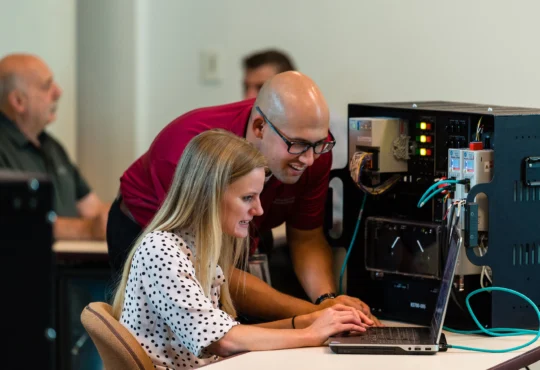
High Ticket Remote Closing Jobs: Your Path to High-Income Remote Sales
Why High Ticket Remote Closing Jobs Are in Demand
The digital economy has completely reshaped how companies sell their products and services. With online businesses booming and more entrepreneurs offering premium coaching, consulting, and technology solutions, there’s a surge in demand for sales professionals who can handle high-value deals. High ticket remote closing jobs have become one of the most attractive opportunities for ambitious salespeople looking to thrive in the online marketplace. Businesses are willing to pay generously for closers who can turn warm leads into paying clients without coming across as pushy. Unlike traditional sales positions that often rely on cold calling and in-person meetings, remote closers focus on qualified leads that are already interested in the offer. This allows companies to maximize conversions while giving sales professionals a chance to work from anywhere in the world. The increasing number of global businesses moving into high-ticket offers ensures that this demand is not just a trend but a sustainable career path.
Defining the Role of a High Ticket Remote Closer
A high ticket remote closer is a specialized sales professional responsible for closing deals on products or services typically valued in the thousands of dollars. Unlike standard retail sales representatives, these closers are trained to manage in-depth conversations with potential clients who are already aware of the value of the offer. Their role is not about convincing someone to buy something they don’t need; it’s about guiding qualified leads to make a confident decision. This position requires a blend of empathy, authority, and strategic questioning to uncover the client’s true needs and link them to the solution being offered. Remote closers also operate entirely online, using tools like video calls, CRM platforms, and instant messaging to communicate with clients. Because they handle deals of significant value, they carry the responsibility of representing the brand at its highest level of professionalism. The role is increasingly seen as essential to scaling high-ticket businesses in industries ranging from consulting to real estate.
Skills That Make a Successful High Ticket Remote Closer
Success in high ticket remote closing jobs depends on mastering a specific set of skills. First, active listening is critical, as clients expect closers to fully understand their pain points and goals before presenting an offer. Second, persuasive communication must be balanced with authenticity—remote closers must guide prospects without using high-pressure tactics. Confidence is another key factor, as clients buying high-value products or services need reassurance that they are making a smart decision. Resilience also plays a huge role since objections and rejection are part of the process, and only those who stay motivated will thrive. Adaptability is equally important, as no two clients are the same, and each conversation requires tailoring the approach. On the technical side, proficiency with CRM systems, video conferencing tools, and other remote work software ensures a smooth and professional client experience. Altogether, these skills create a professional who can consistently close deals while maintaining trust and credibility.
Benefits of Working in High Ticket Remote Closing Jobs
One of the most appealing aspects of high ticket remote closing jobs is the flexibility they provide. Sales professionals can work from virtually anywhere in the world, whether at home, in a co-working space, or while traveling. This freedom is particularly attractive to digital nomads and those seeking location-independent careers. Another major benefit is the earning potential—closers often work on commission, which means a single successful deal can generate income equal to or greater than a month’s salary in other professions. Additionally, these jobs create opportunities for personal and professional growth, as closers are constantly engaging with high-level clients and decision-makers. Networking with entrepreneurs, executives, and business owners can open doors to future partnerships or career advancements. The lifestyle benefits also extend to improved work-life balance, as many companies allow closers to set their schedules. Overall, this career offers both financial rewards and lifestyle freedom that few traditional jobs can match.
Challenges in High Ticket Remote Closing Jobs
Despite the many advantages, working as a high ticket remote closer comes with challenges that professionals must be prepared for. One of the biggest hurdles is handling objections from potential clients. Not everyone is ready to make a big financial commitment, and it’s up to the closer to navigate these concerns with patience and professionalism. Time zone differences can also complicate scheduling, especially when working with international clients. Remote closers must develop strong discipline to stay productive without direct supervision, as distractions at home can easily reduce effectiveness. Another challenge is maintaining consistent motivation—since this role often involves performance-based income, a slow period can be discouraging. High expectations from employers or clients also add pressure, as businesses depend on closers to deliver results. Finally, the competitive nature of the field means only those committed to ongoing skill development will thrive. While these challenges can be demanding, they also push closers to develop resilience and sharpen their expertise.
Industries Offering High Ticket Remote Closing Opportunities
The demand for high ticket remote closing jobs spans multiple industries. Coaching and consulting firms often rely on closers to secure new clients for programs that can cost thousands of dollars. SaaS and technology companies also hire closers to handle enterprise-level sales, where contracts may be valued in the tens of thousands annually. High-end e-commerce brands offering luxury goods or premium services use closers to guide customers through the decision-making process. Real estate companies have also embraced remote closers to manage property investment deals online. Additionally, financial services and investment firms frequently employ closers to connect with clients seeking wealth management solutions. These industries share a common trait: they deal with products or services that require careful decision-making and high trust levels, making skilled closers essential. For sales professionals, this variety means there are numerous paths to explore, depending on personal interests and expertise.
How to Get Started in High Ticket Remote Closing Jobs
Breaking into high ticket remote closing doesn’t always require years of experience, but it does require preparation and strategy. A strong first step is to build credibility by learning sales fundamentals and practicing communication skills. Many professionals begin by taking specialized training programs or certification courses designed specifically for high ticket sales. Networking is also invaluable, as many remote closing jobs are secured through referrals or connections in the sales community. Aspiring closers should also develop a polished online presence, including a LinkedIn profile that highlights relevant skills and achievements. Applying to opportunities in industries that align with personal interests can make the job more rewarding and sustainable. Persistence is critical—securing the first role may take effort, but once established, doors to higher-paying opportunities often open quickly. With dedication, anyone can position themselves to thrive in this high-demand field.
Tools and Platforms Every Remote Closer Should Know
Technology is the backbone of high ticket remote closing jobs, and professionals must be comfortable with the tools of the trade. CRM systems like HubSpot or Salesforce help track leads, manage follow-ups, and organize client information. Video conferencing platforms such as Zoom or Google Meet are essential for conducting face-to-face conversations with prospects. Instant messaging apps like Slack or WhatsApp are often used for quick communication with teams or clients. Scheduling tools like Calendly simplify appointment booking across different time zones. Productivity platforms such as Trello or Asana help closers stay organized while managing multiple deals. Familiarity with these tools not only makes the sales process smoother but also demonstrates professionalism to clients. Mastering them can give closers a significant edge in efficiency and credibility.
Career Growth Paths for Remote Closers
High ticket remote closing is not just a job—it can be the start of a long-term career path with multiple opportunities for growth. Many closers advance into sales management roles, where they lead teams and develop sales strategies. Others choose to specialize further, becoming experts in particular industries like technology or real estate. Some sales professionals leverage their skills to build personal brands, creating content, courses, or coaching programs for aspiring closers. A growing number also launch their own agencies, hiring and training other closers to serve multiple clients. These career paths highlight the scalability of remote closing skills—they can open doors far beyond individual sales. Whether aiming for leadership, entrepreneurship, or industry specialization, closers have the potential to continuously expand their professional horizons.
FAQ Section
What is the average salary for high ticket remote closing jobs?
Earnings vary widely, but many closers earn between $5,000 to $15,000 per month, depending on commissions and the value of the deals they close. Top performers can earn significantly more.
Do I need prior sales experience to become a remote closer?
While prior sales experience helps, it’s not always required. Many companies provide training, and dedication to learning the craft can help beginners break in.
How do I find legitimate high ticket remote closing opportunities?
Legitimate opportunities are often found through networking, reputable job boards, or referrals from industry professionals. It’s important to research companies carefully before committing.
Can remote closers work internationally?
Yes, remote closers can work with companies and clients worldwide. However, managing time zone differences and language barriers is often part of the job.
What’s the difference between an inbound and outbound remote closer?
Inbound closers work with leads who have already expressed interest in a product or service, while outbound closers reach out proactively to potential clients who may not yet be familiar with the offer.









